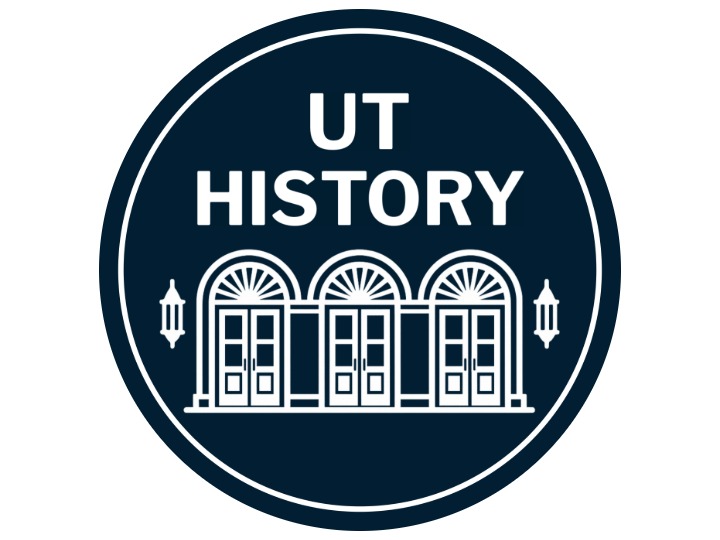Welcome

UT History Logo.
Welcome to the History Department at The University of Texas at Austin! We are a large and distinguished department, filled with prize-winning scholars and innovative teachers who write field-defining books and articles, teach engaging classes, and work as public historians. We investigate historical events from across the globe and over the last two millennia.
Our collaborative community of scholars centers on our Institute of Historical Studies and on our vibrant graduate program. Our faculty have established pioneering courses such as Japan Lab, the Mapping Violence Project, the Radical Hope Syllabus, and the Normandy Scholars Program, and they reach audiences beyond the university with their digital magazine and podcasts, including Not Even Past, This is Democracy, and 15 Minute History. We are convinced of the power of historical inquiry to tell us about the processes that have shaped our world.
Students come to history for many reasons. Often, students are inspired by their family histories, or the history of their communities, or the history of their religious or cultural traditions. They are also fascinated by research: they discover the excitement of finding and investigating the materials that our predecessors left behind, and they enjoy using documents and artifacts to create compelling accounts that illuminate the variety of human experience.
In our classes and programs, students develop skills that underpin a range of professions. History students learn to write well, speak directly, and think critically. They become adept in evaluating evidence and understanding the perspectives of the documents they analyze. They organize and evaluate complex sets of data, and they cooperate on group projects. They study abroad and in international collaborations; they develop historical video games and produce digital maps and timelines; and they work on honors theses, internships, and other exciting research projects. They study with professors who bring their own scholarly research into their classrooms, and they join these senior scholars in contributing to the formation of historical knowledge. With these skills, history majors find careers in a variety of fields, including business, law, education, journalism, government service, medicine, entertainment, data analysis, and more. Learn more about the diversity of careers our history majors pursue, and about our recent doctoral program student placements.
Historians seek to understand the achievements, the mistakes, the desires, the values, and the struggles of people who lived in the past. The complexity of human actions and motivations teaches us about ourselves, our communities, our countries, and the globalized world that we now live in. The study of history prepares our students for work and careers but even more, it prepares all of us to be engaged citizens who can weigh often conflicting evidence and make informed judgments in an ever more interconnected world.
Chairs of History, 1888-Present:
- Mark Atwood Lawrence, 2024-present
- Martha G. Newman, 2023-2024
- Alan Tully, 2022-2023
- Daina Ramey Berry, 2020-2022
- Jacqueline Jones, 2014-2020
- Alan Tully, 2002-2014
- Brian P. Levack, 1999-2001
- Carolyn Boyd, 1994-1999
- Brian P. Levack, 1988-1994
- Standish Meacham, 1984-1988
- Lewis Gould, 1980-1984
- Michael G. Hall, 1976-1980
- Clarence G. Lasby, 1972-1976
- Standish Meacham, 1969-1972
- William Goetzmann, 1968-1969
- Robert Divine, 1964-1968
- Joe B. Frantz, 1959-1964
- Barnes Fletcher Lathrop, 1953-1956
- Milton Rietow Gutsch, 1927-1951
- George Pierce Garrison, 1888-1910
